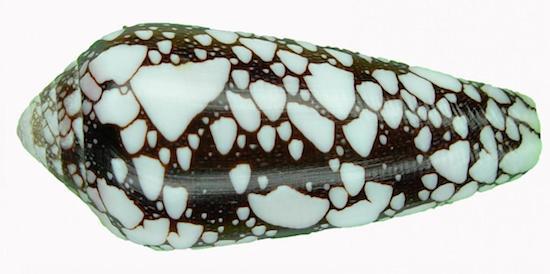This predator of the seas may hold the secret to cancer treatment. The venom of Conus episcopatus contains toxins that open up new avenues for drugs.

His elegant patterns and his interest in medical research would almost make you forget that he is dangerous. A poisonous species of marine cone may hold the recipe for a next class of drugs. Australian researchers publish in the journal of the American Academy of Sciences, PNAS, the results of their latest work. New toxins have been identified. And they have the potential to treat pain, but also cancer.
This science-dreaming gastropod is only found in the seas east of the Australian coast. It hides among 700 species of marine cones. The one that interests the team at the University of Queensland, the Conus episcopatus, is a predator capable of biting humans. Its venom contains thousands of toxins. Some had never been precisely analyzed.
For the first time, thanks to a new tool, it was possible to examine the exact composition of the different proteins, as well as their activity.

In total, 6 molecules could lead to a therapeutic avenue. “We hope that these recently discovered structures will lead to the development of new drugs that can be used to treat pain, cancer and other diseases,” said Professor Paul Alewood, lead author of the study. Indeed, some of the conotoxins identified in this article contain peptides that are found in drugs already on the market.
It will now be necessary to demonstrate that these new molecules are effective in humans. On this ground, there is hope: a study presented in 2014 suggested that conotoxins had an analgesic power 100 times more powerful than morphine, without the side effects.
.

















